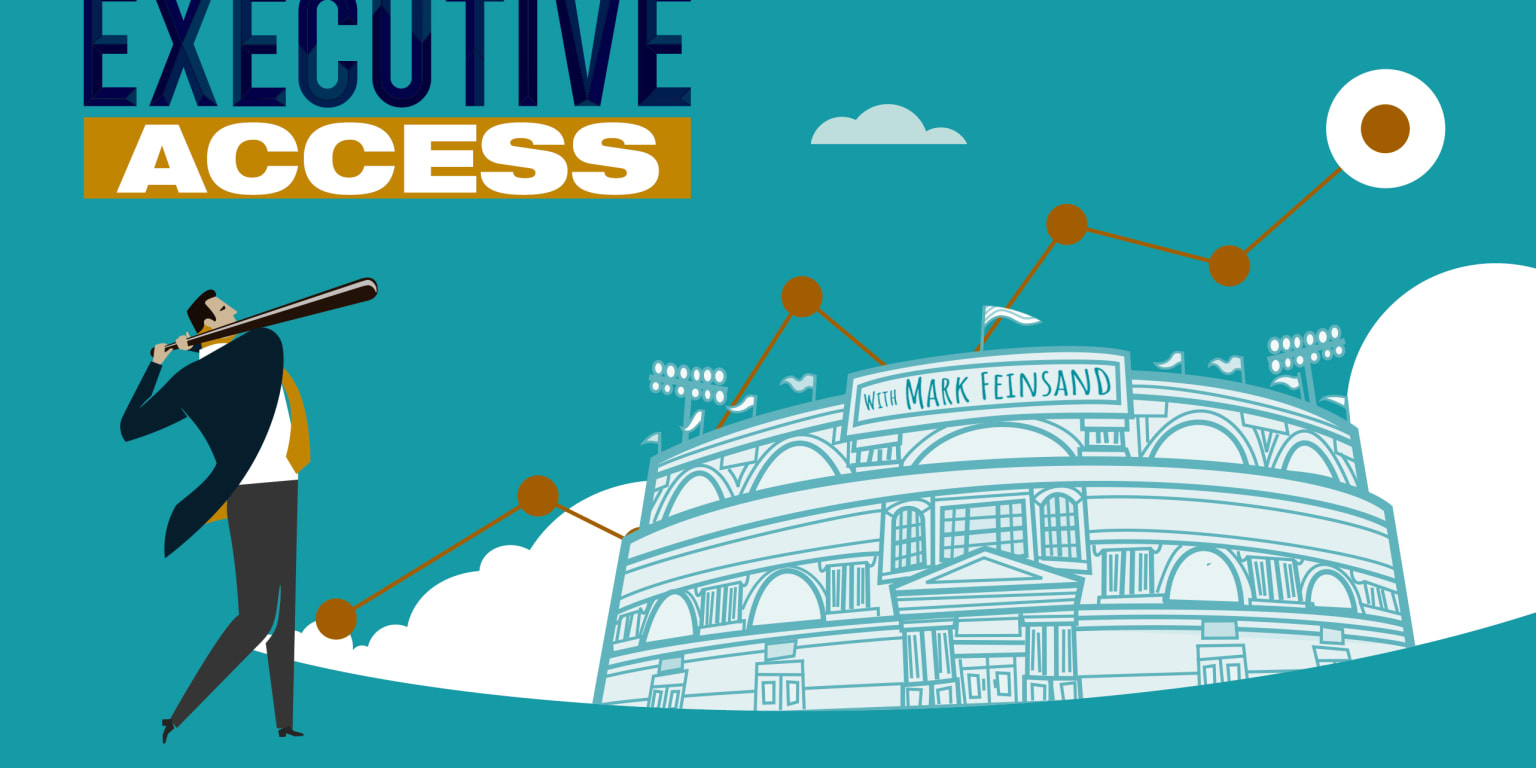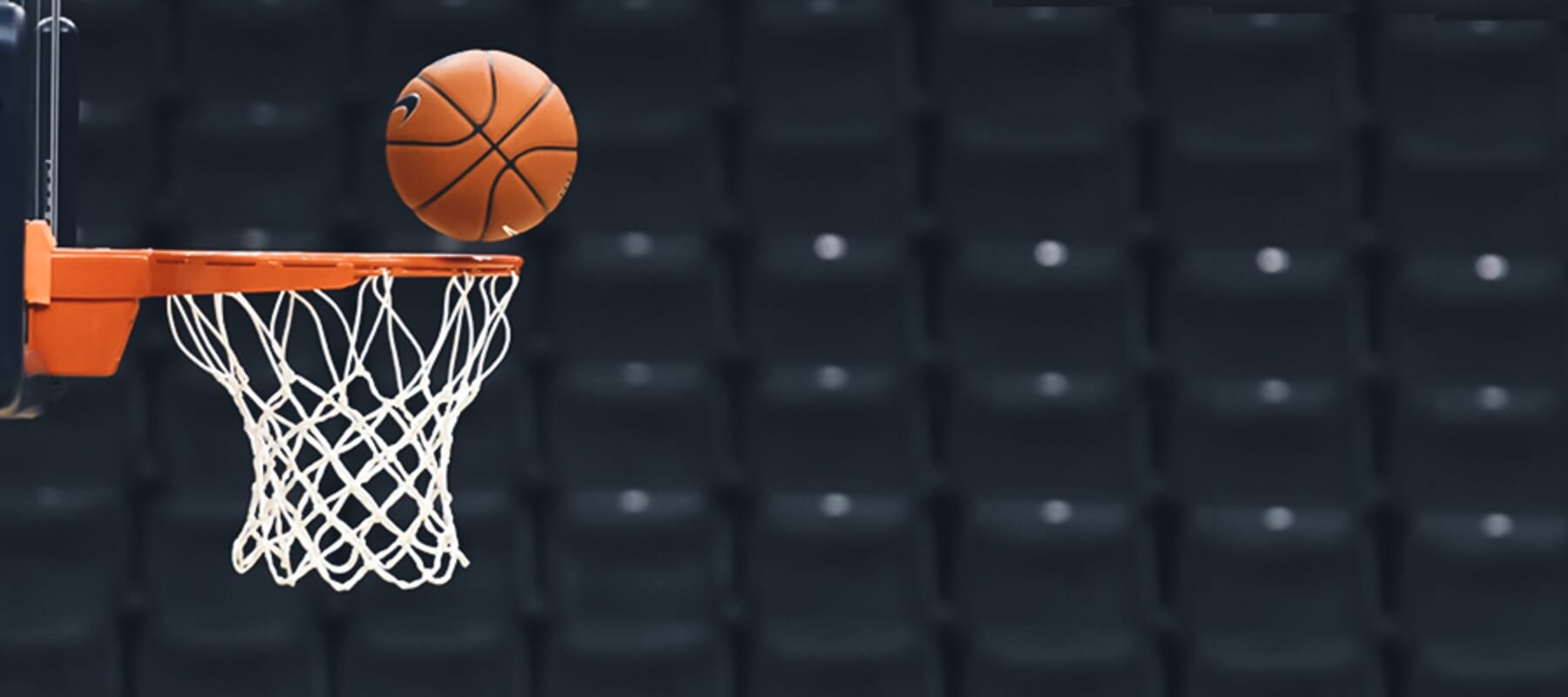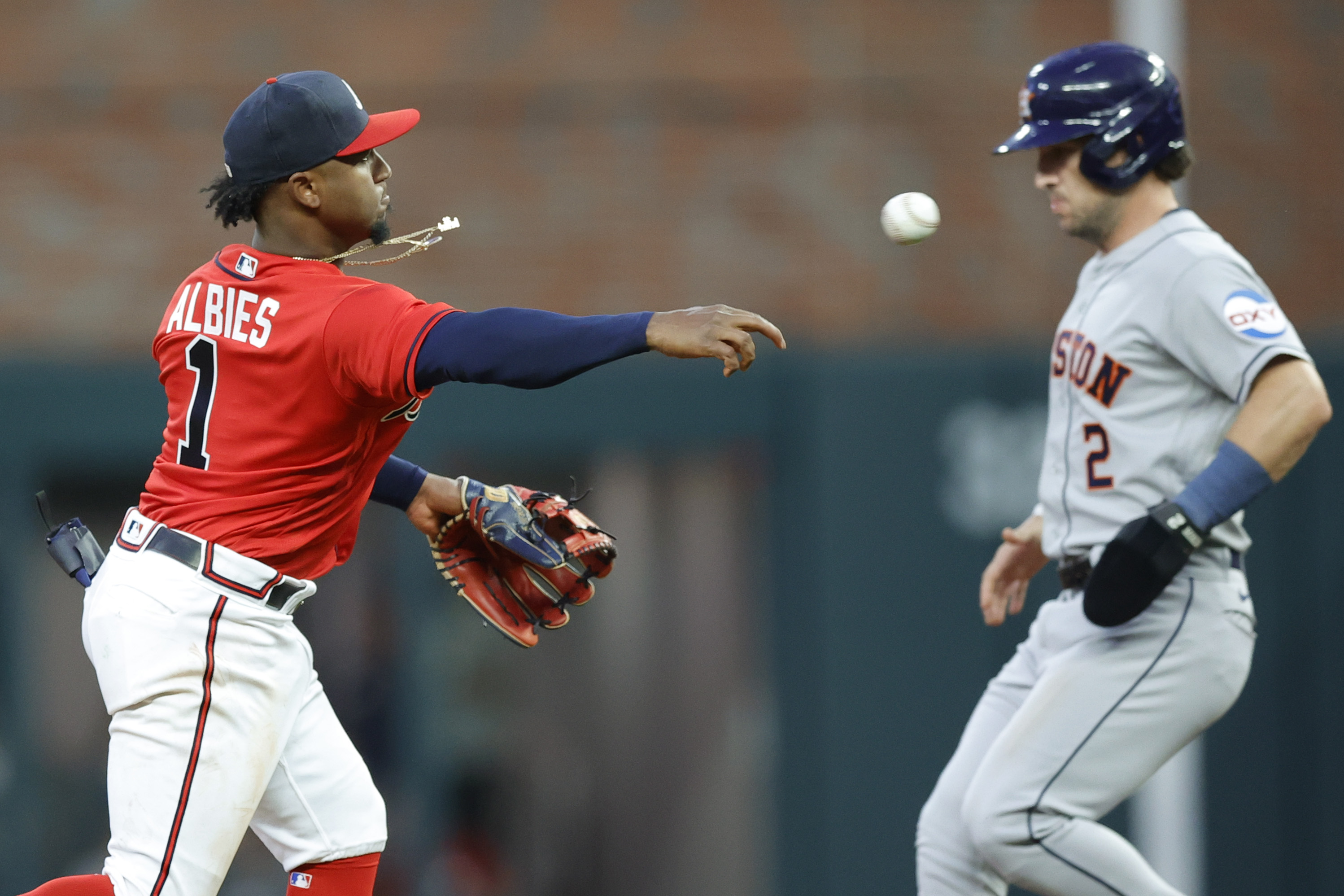Maryland
‘Surreal’ journey for Maryland native: Q&A with O’s AGM Eve Rosenbaum

Eve Rosenbaum is among a handful of female assistant general managers in baseball, but her path to Camden Yards began in a different sport altogether.
The Maryland native began her career working for the National Football League, though the lifelong baseball fan eventually found her way to Major League Baseball, spending five years with the Astros before joining the Orioles’ front office.
MLB.com’s Mark Feinsand sat down with Rosenbaum this spring to discuss her entry into the game, what she learned working for the NFL that translated to MLB, the challenge of the AL East and much more in the latest edition of Executive Access.
This interview has been edited for length and clarity.
MLB.com: You grew up in Bethesda, Md. Were you an Orioles fan growing up?
Rosenbaum: I was an Orioles fan growing up. We had season tickets to the Orioles; we had a family of five — I have two brothers — so we had a set of six seats because my parents said they needed a place to put the diapers. I went to tons of games; I must have gone to 60 or 70 games a year, basically until I got into high school.
MLB.com: You were the captain of your high school softball team and played at Harvard, where you graduated in 2012 with a degree in psychology and a minor in philosophy. Those are not two subjects that you think of that set you up for a career in baseball. Was a career in baseball always the goal?
Rosenbaum: I think I always wanted to work in sports in some capacity. Baseball was my favorite sport, so that would have been my goal. Baseball operations is sort of the dream job because you’re actually running the team. So I knew I wanted to do something in sports, but I didn’t know exactly what I wanted to do. I’ve never been that sort of planner.
One of the nice things about going to Harvard or any place where you get a good education is anything that you study can set you up for any career that you want to have because you’re gaining critical thinking skills and the ability to communicate. Anywhere you get a good education can pretty much set you up for a career in baseball if you know how to utilize the skills that you gain in school.
I studied psychology and philosophy because I enjoyed it and liked it. I still think both of those fields are really interesting, but I don’t have as much time to read about them in the news and follow the latest developments as I did when I was just out of college because baseball is so all-consuming. I just found it fascinating; with psychology, you’re talking about how people think, how people behave and what their motivations are. That actually comes into play a lot in baseball when you’re having conversations with people and they’re talking about players who they like and decisions that they’re advocating for and you want to know, what are some of the biases that might be in this person’s background? What’s the best way to communicate with this person? What’s the best way to get through to them clearly?
Writing emails is a huge part of any job, and so much of what I did in college was writing very concise papers, so I feel like I actually have a lot of practice in writing very brief emails or making concise presentations from the work that I did in college.
MLB.com: Your first foray into baseball was as a Fenway Affairs intern with the Red Sox in 2010-11. How did you land that job and what did it entail?
Rosenbaum: Fenway Affairs, at the time, was a department that dealt with local business affairs and also government affairs. I did all sorts of various things that summer, but a big one was talking to all the businesses around Fenway Park, figuring out where there was parking and making a map of all the different parking lots around Fenway to put on their website. I was also dealing a lot with the MBTA, which is the public transit system up there, trying to encourage people to take the T because there isn’t a lot of parking around Fenway Park. That was a big part of what I did; the map I made was actually on the website until a few years ago, which is pretty funny.
A big thing I did was walking around and talking to all the local businesses, finding out what they needed from us and how could we be a good business partner. My department also was the department that did concerts; the big show when I was there was Aerosmith and the J. Geils Band, so I spent a lot of time helping the plan that concert. On the day of the concert, I was in charge of Steven Tyler’s dad and making sure that he was comfortable.
MLB.com: You also interned with MLB after your junior year, working with Kim Ng among others. What did you learn working with Kim?
Rosenbaum: It was super cool to work for her. She’s just so calm and collected; that was always really impressive to see. With all the various tasks and responsibilities she was doing — and I’m sure she was interviewing for jobs in the background as well — she was always so cool and calm and collected, like nothing could faze her. She’s still like that. Every time I interact with her, she’s just cooler than you are and cooler than everyone in the room. On my last day, I sat down to do kind of an exit interview with her, and she gave me advice and I wrote down some of the things that she advised me on and I still have that piece of paper at home back in Baltimore.
MLB.com: After graduation, you got a job at the NFL in its junior rotational program. Eighteen months later, you were promoted to manager of business intelligence and optimization. Did you envision that football might be your future?
Rosenbaum: That was my first job out of college. It’s a full-time gig where you spend two years at the NFL rotating through four different departments. They joked that they hired people that were smart enough to do the work of two people, but young and inexperienced enough that they only had to pay us to be one person. I knew I wanted to be in sports, but I didn’t know exactly what I wanted to do, so this was actually perfect because I got to experience multiple departments. And it was working for the NFL, which is the biggest behemoth of American sports, so I was able to learn from how they run their league as a business and to really see the inner workings of that.
MLB.com: You ended up with the NFL for two-and-a-half years before leaving to join the Astros as coordinator of international baseball operations. How did you wind up making the jump to baseball?
Rosenbaum: When I was an intern at the Commissioner’s Office, Oz Ocampo was there, working under Kim in the international baseball operations department. I had done a project with him. I was working for the NFL, I was bicoastal between New York and L.A., and I never check Facebook; I don’t even have a Facebook app on my phone. I just happened to open it up and I saw I had this message from Oz Ocampo that said, “Hey, Eve. Hopefully you remember me from when you were an intern. I’m now the international scouting director for the Astros and I’m looking to hire someone to help me. I remember that you were really good and you were very passionate about baseball. Would you have any interest in coming to work here?” I was just out of college and I was like, “Why would I pick up and move to Houston when I have this great gig here?”
Then, I realized this could be a once-in-a-lifetime opportunity and my chance to jump into baseball. I ended up going through the interview process, got the job and started there in January 2015.
MLB.com: You were eventually promoted to manager of international scouting. What did you enjoy most about international scouting?
Rosenbaum: In a way, I did enjoy the challenge. I remember talking about our amateur scouts and our pro scouts and our pro scouts were saying, “We think our job is hard, and we have all this data in front of us. We can talk to these players. I can’t imagine how you’re doing what you’re doing.”
In a way, the challenge is something that I enjoyed; it’s still what I enjoy a lot about baseball and getting to build a team. The feeling and the reward when you see a player when he’s younger and you essentially make a bet on him and say, “I think this guy is going to be good; I think he might be a big leaguer one day.” To see him develop, to see him get a shot at the big leagues and then to be a part of a winning team, to see how fulfilling it is for the players, it’s a very rewarding feeling for a scout or someone who is part of a front office. I’ve always really enjoyed that. Seeing players from the Dominican Republic who maybe didn’t go to school and didn’t speak English, and now they’re supporting their entire families, making millions of dollars and they’re national heroes. It’s life-changing for those families. It’s very rewarding.
MLB.com: After five years with the Astros, Mike Elias becomes the Orioles’ GM and hires you as the director of baseball development. What was the bigger draw: coming to work with Mike or coming home to Baltimore?
Rosenbaum: That’s a really good question. They were both really big. I think the word I use the most for it is surreal. Just an unbelievable circumstance. I really enjoyed working with Mike and Sig [Mejdal], and this is the team I watched growing up, so I couldn’t possibly choose.
MLB.com: In May 2022, you were promoted to assistant GM, a role not many women have held. What did that mean to you?
Rosenbaum: The way I always answer, which I think is true, is that I don’t think about it. To me, I’m just Eve and I’m just doing my job. I’m just trying to get the Orioles to the playoffs; that’s what I’m thinking about constantly. I’m not thinking, “I’m Eve, the fourth woman AGM ever and I have a spotlight on me so I have to take that in consideration with everything that I do.” I don’t think that way, because I’ve always been me. I wake up in the morning, here’s my job and that’s what I’m going to do. But I’m not naive enough to think it doesn’t matter or people aren’t thinking about it or it isn’t an accomplishment.
Every now and then, I’ll sort of step back and think about it. I’m able to appreciate looking back on my career the extra challenges I was able to overcome and what it means to younger women or little girls if they see me in my position. I think because of my upbringing and the things we’ve talked about, I think I always had high expectations for myself and I always knew I was going to do something. I didn’t know what it was going to be or when it was going to be, but I had expectations for myself that I would hopefully have a successful career. To see it come to fruition is a very rewarding thing, but I’m not sitting here totally in awe and in shock, because I’ve been working my whole life for something like this.
MLB.com: The Orioles’ farm system has been very highly ranked during the past few years. How crucial is that pipeline when it comes to sustained success — especially playing in the AL East where some teams will always be able to outspend most other clubs?
Rosenbaum: That’s the key, for sure. It’s the single most important thing, to have a constant stream of good players who can consistently be added to the Major League roster over the years and stay with the Major League team and perform like stars. That’s been our goal. Knock on wood, I think we’re right on the cusp of seeing that now. That’s the way for us to compete with these behemoths. Hopefully we can out-draft everybody and out-develop everybody and out-international-sign everybody so we have this constant stream of prospects to help us stay competitive.
MLB.com: What do you think is your biggest strength as an executive?
Rosenbaum: I think I have the ability to get along with all different types of people. It’s almost like being a chameleon. If someone is very high-strung, I think I can match them. If someone is very calm, I can sort of dial back and be very calm. Any task that Elias throws at me — and he throws a lot of tasks at me — I can figure out what I need to do and who the right people are and what’s the best way of dealing with it. I think I can adapt to anything.
MLB.com: If there is one aspect of your job you want to improve upon, what would that be?
Rosenbaum: I think you can always be more efficient with your time. Especially in baseball, the days can drag on and you get used to being at the ballpark all the time. Sometimes, it can wait until tomorrow and you can go home and watch a TV show.
MLB.com: What’s your favorite part of your job?
Rosenbaum: Going to this ballpark that I’ve been going to my entire life, seeing the fans come back and root for the team and go crazy when we have last-minute wins. Seeing everyone around the around the city wear Orioles hats and knowing, “Hey, I’m doing that. I’m a part of that.”
MLB.com: What is your least favorite part of your job?
Rosenbaum: Baseball is all-consuming. You’re always on; I think a lot of people in the baseball industry would tell you that. Sometimes, it can be really hard to separate, so my least favorite part is having to constantly be paying attention to your job and constantly be thinking about the team. Every now and then, you’d like to turn your phone off for 24 hours, watch a movie marathon and see some friends. You can’t do that in baseball.
MLB.com: In November 2020, Sports Business Journal listed you among the candidates to follow Kim Ng as the second female MLB GM. Has that been a goal of yours?
Rosenbaum: This is a good question and one I get a lot. Because I’m not someone who really plans things out, I don’t know. Right now, I’m just focused on getting the Orioles back to the playoffs. That’s a huge task ahead of us for this season and for many seasons ahead of that. That’s really what I’m focused on. Whatever comes next, comes next, and I’ll deal with it as it comes.

Maryland
Mild and sunny Monday in Maryland

Watch CBS News
Be the first to know
Get browser notifications for breaking news, live events, and exclusive reporting.
Maryland
Penn State a Heavy Favorite Over Maryland in Regular Season Finale

The oddsmakers are expecting Penn State to run away with a victory in its regular season finale against Maryland. The Nittany Lions are a 24.5-point favorite when the Terrapins come to Happy Valley on Saturday.
Penn State is coming off a gritty 26-25 victory at Minnesota in a back-and-forth thriller on Saturday night. The Nittany Lions put the game away with a 5:48 drive to run out the clock that featured three fourth down conversions, including a fake punt that resulted in a 32-yard run by true freshman Luke Reynolds.
Maryland fell to Iowa 29-13 in its home finale on Saturday. The Terps were unable to overcome a 13-0 halftime deceit and an offense that could only produce 227 yards on the day. Maryland enters the game on a four-game losing streak, and have lost six of its last seven. The 4-7 Terps have won only once in Big Ten play, beating USC 29-28 in a fourth quarter comeback.
Penn State beat Maryland 51-15 in 2023 in the teams last meeting. The Nittany Lions and Terps will kickoff at 3:30 p.m. on Saturday, with coverage provided by BTN. The game will serve as Senior Day for Penn State.
Maryland
Villanova vs Maryland Prediction, Bet Builder Tips & Odds

Maryland Look the Smart Pick on the Spread
Our best wager is that Maryland are going to cover a generous -6 on the spread. You can get 1.92 that there’s a bigger margin of victory against Villanova.
57-40 Win for Villanova in Pair’s Last Encounter
Villanova Wildcats claimed a victory in their previous game. A 93-49 home win occurred against Pennsylvania Quakers.
Maryland Terrapins won their last game, beating Canisius Golden Griffins at home. It was a 108-37 win.
Villanova beat Maryland in their last head-to-head matchup. It was a 57-40 scoreline.
Expert College Basketball Analysis
The college basketball forecasts are only made once we have established the latest team news. It’s also important to study the form and investigate the most relevant stats to get the full picture.
Key Villanova vs Maryland stats:
We’re excited to see Maryland at -6 on the spread in this college matchup. We think it’s a great number for the betting favorites to cover at odds of 1.92.
If you’re looking for a bigger potential return on your stake, there is always the option to move the line. Consider the betting odds and whether each line can be covered.
Maryland -6 Probability
The sportsbooks imply that our pick has a 52.1% prospect of winning. Taking all factors into consideration, our cappers think there’s a stronger chance of success and have a probability interval between 55-60%. That means we’re regarding it as a value wager.
Villanova vs Maryland Prediction
Maryland -6 @ 1.92
Gamble responsibly 18+. All odds are correct at time of publishing and are subject to change. To use the Bookmaker Live Streaming services you will need to be logged in and have a funded account or to have placed a bet in the last 24 hours. Geo-restrictions apply.
Published 03:52, 24 November 2024
Correct Score Prediction
Rather than betting on the Terps to win, there’s the option to try your luck when it comes to the correct score lines. Take a chance on a 74-63 triumph in their favor.
Villanova vs Maryland Odds
The odds and lines are updated on a frequent basis. You might therefore find that they are different to the ones listed for the betting predictions and bet builder tips.
Latest Moneyline Odds Suggest Maryland Victory
Maryland have the shortest price to win this college game, with the sportsbooks giving them a 70% probability due to their 1.43 Moneyline betting odds. The market suggests that Villanova are least likely to win at 2.80.
6 is where the spread lies, with total points being 140 right now. There are many ways to bet on basketball including the Totals. Those that want to back Under 140 can find odds of 1.91 available.
The betting sites offer stacks of team props and game lines when it comes to most college basketball contests. Make sure you look through all the available options before deciding which bet to place.
Betting Lines & Odds
Moneyline

Point Spread

Total Points


Player Props & Micro Betting
There is regularly betting value to be found from wagering on the player props with the best online gambling sites. You can find lots of ways to back for or against a specific player lining up for one of the two teams.
Micro betting provides a rollercoaster ride for college basketball bettors. It can be great to enjoy the live lines, with the opportunity to bet on the Next Field Goal. Watch the live action before deciding which way to go.
Team Stats
Latest regular season and playoff games stats.

Villanova Stats

Maryland Stats
Moneyline
- 4 wins and 6 defeats in the last 10 games
- 2 wins and 8 defeats in the last 10 games on the road
Moneyline
- 5 wins and 5 defeats in the last 10 games
- 6 wins and 4 defeats in the last 10 home games
Point Spread
- +6 Betting Line: Have covered the spread in 6 of the last 10 games
- +6 Betting Line on the Road: Have covered the spread in 4 of the last 10 games on the road
Point Spread
- -6 Betting Line: Have covered the spread in 5 of the last 10 games
- -6 Betting Line at Home: Have covered the spread in 6 of the last 10 home games
Total Points
- Game Totals: An average of 140.20 pts in the previous 10 games
- Game Totals on the Road: An average of 136.30 pts in the previous 10 games on the road
- Over 140: Covered in 4 of the previous 10 games
- Over 140 on the Road: Covered in 3 of the previous 10 games on the road
- Team Totals: Have scored an average of 72.60 pts and allowed 67.60 pts in the last 10 games
- Team Totals on the Road: Have scored an average of 65.00 pts and allowed 71.30 pts in the last 10 games on the road
Total Points
- Game Totals: An average of 140.30 pts in the previous 10 games
- Game Totals at Home: An average of 141.50 pts in the previous 10 home games
- Over 140: Covered in 5 of the previous 10 games
- Over 140 at Home: Covered in 5 of the previous 10 home games
- Team Totals: Have scored an average of 76.00 pts and allowed 64.30 pts in the last 10 games
- Team Totals at Home: Have scored an average of 79.30 pts and allowed 62.20 pts in the last 10 home games
-

 Business1 week ago
Business1 week agoColumn: Molly White's message for journalists going freelance — be ready for the pitfalls
-

 Science5 days ago
Science5 days agoTrump nominates Dr. Oz to head Medicare and Medicaid and help take on 'illness industrial complex'
-

 Politics7 days ago
Politics7 days agoTrump taps FCC member Brendan Carr to lead agency: 'Warrior for Free Speech'
-
/cdn.vox-cdn.com/uploads/chorus_asset/file/25739950/247386_Elon_Musk_Open_AI_CVirginia.jpg)
/cdn.vox-cdn.com/uploads/chorus_asset/file/25739950/247386_Elon_Musk_Open_AI_CVirginia.jpg) Technology6 days ago
Technology6 days agoInside Elon Musk’s messy breakup with OpenAI
-

 Lifestyle1 week ago
Lifestyle1 week agoSome in the U.S. farm industry are alarmed by Trump's embrace of RFK Jr. and tariffs
-

 World7 days ago
World7 days agoProtesters in Slovakia rally against Robert Fico’s populist government
-

 News7 days ago
News7 days agoThey disagree about a lot, but these singers figure out how to stay in harmony
-

 News7 days ago
News7 days agoGaetz-gate: Navigating the President-elect's most baffling Cabinet pick




















